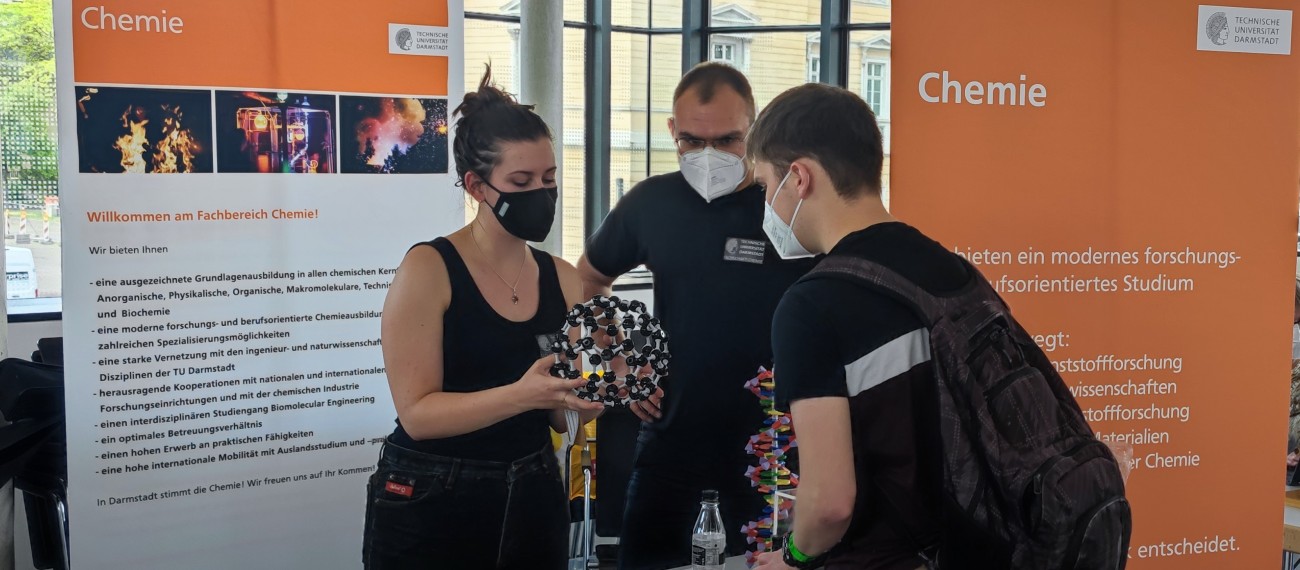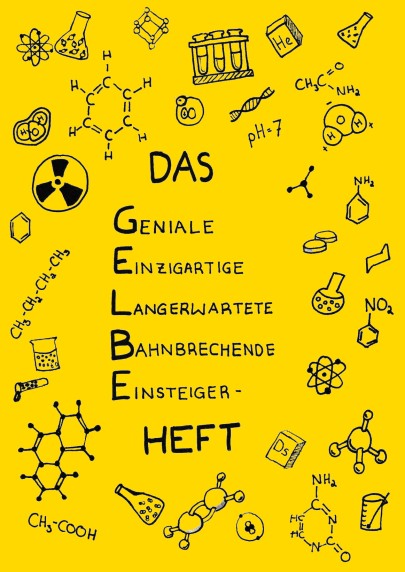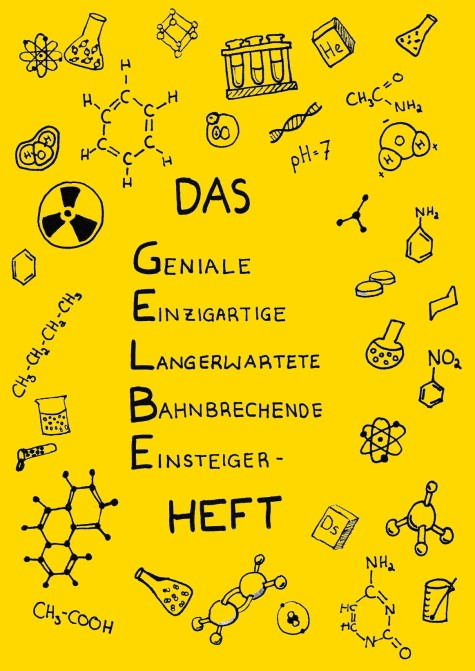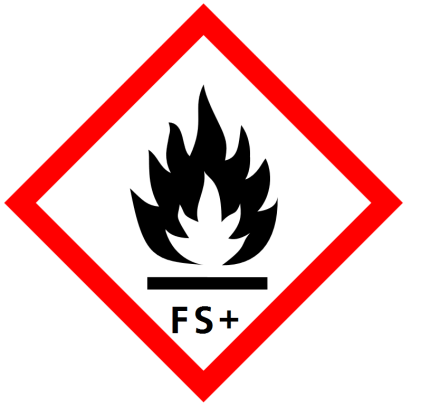A lot of information on studying in Darmstadt is only available in German. Since you may be able to extract some helpful facts from those websites and booklets anyway, we refer to those sources nonetheless. If you need additional guidance, feel free to contact us so that we can solve any issues personally! :)
We're glad you're interested in studying Chemistry or Biomolecular Engineering (BME).
We think that's great!
Since this page is written and maintained by people who are active in these programmes, you can imagine that we have a lot to say in favor of studying at our department in our city. One decisive factor for you could be chemistry and its interface with molecular biology being incredibly exciting and versatile. The Department of Chemistry at the TU Darmstadt reflects this wonderfully through its broad scientific focus and strong cooperations with the departments of biology and physics.
There are many options to choose from
Nevertheless, studying here is not necessarily the right thing for everyone. Perhaps you would prefer to train as a chemical technician, chemical-technical assistant or chemical laboratory assistant? Or, instead of a research location that focuses more on basic research and theory, one that moves your studies closer to product development or plant construction, for example at a university of applied sciences? Perhaps you would prefer to go directly into your favourite branch of chemistry instead of completing the B. Sc. in Chemistry in a very broad-based way? Or perhaps you would prefer to start with biology only, instead of looking for a strong link to chemistry in the B. Sc. BME? Science communication could also offer an attractive career path. Perhaps another city or even doing your whole degree abroad appeals to you?
Orientation at the crossroads
With the Yellow Booklet, we try to help you answer these questions by explaining the structure and contents of our degree programmes in a little more detail and by taking a look at life in Darmstadt. This should enable you to compare our degrees with all the other possible options. (Of course, we can't compare – your future in mind – with other options for you.)
If you prefer something more interactive, you can also try out the Online Self Assessments (OSA) BME, Chemistry, Teaching at Secondary Schools or Teaching at Vocational Schools or watch video statements by individual students of the respective degree programmes.
Any questions?
If you still have questions after watching and browsing, please contact us by email. We look forward to seeing you at our department and welcome you during the orientation week (OWo)!
The Yellow Booklet will be distributed for free at hobit and TUDay. It is intended to provide an initial overview of the chemistry and BME degree programme at the TU Darmstadt. All measurable facts come from the respective responsible offices at TU Darmstadt. Apart from that, the selection of topics and impressions are based on our own experiences from the first phase of our studies and supporting other students during their orientation period. Typical questions that come up when starting a degree programme and which are dealt with in this booklet are:
- What does studying look like in daily life?
- What is special about studying natural sciences?
- How does the chemistry/BME degree programme at the TU Darmstadt work? Which classes are taught and how much laboratory work is involved?
- What awaits me after finishing my (first) degree in chemistry/BME?
- What opportunities does TU Darmstadt offer for studying abroad?
- What is life like in Darmstadt?
- How does the application process work and what happens after I have submitted my documents?
- Where can I get more information?
- Gelbes Heft 2020 (PDF-File, 7310kB)
- Gelbes Heft 2019 (PDF-File, 6518kB)
- Gelbes Heft 2018 (PDF-File, 6330kB)
- Gelbes Heft 2017 (PDF-File, 647kB)
- Gelbes Heft 2016 (PDF-File, 517kB)
- Gelbes Heft 2015 (PDF-File, 487kB)
The application itself
In order to apply to the TU Darmstadt, you first have to create an applicant account on our campus management system TUCaN. Just click on “TUCaN Account'' > “Create Account.
Once the online application has been completed, it can be sent off immediately. However, in order for your application to be considered, the university needs some additional documents. These include a CV, a motivation letter stating why you would like to study chemistry/BME at TU Darmstadt, a certified copy of your school report and a printed and signed version of the TUCaN application. You should also attach certificates of additional extracurricular qualifications.
The application must be sent by post to the Student Administration Office of the TU Darmstadt by 15 July of the respective year.
You can find further information on the department's website under Application.
Please also notice that the application procedure may differ for international applicants. Please check the information on International Admission in this case.
Admission and/or suitability assessment procedure (EFV)
After you have submitted your application, it usually takes a few weeks until you receive feedback. In a process called suitability assessment procedure (Eignungsfeststellungverfahren, EFV), your final examination grades and additional qualifications are converted into a point system, which particularly values scientific qualifications. Based on the amount of points you receive, you’ll either be directly admitted, directly rejected or will be invited to an interview.
In many cases, the proven competencies are not sufficient for the department to be sure that you can and want to master your studies here; therefore, you will be invited to an interview with a score in the mid-tier. This interview should be about whether you have a realistic idea of what to expect and whether you can motivate yourself for the degree programme and its requirements. The interview is not primarily about classifying you as (un)qualified for a degree programme at our department, but rather about assessing together whether this degree is exactly the right path for you.
In addition to the fact that an EFV interview is also a kind of study guidance, you will also have the opportunity to get to know a professor, a member of the academic staff and a member of the student council, as well as the university facilities.




